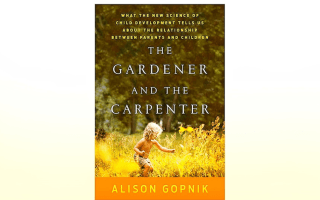Maintaining relationships takes considerable effort. But, maintaining a marriage while sheltering-in-place and working from home with kids distance learning may require the help of mental health professionals. After having kids, couples often find their focus shifts to the kids and away from each other-making maintaining a relationship with one another an afterthought. However, this year of distancing has added more than the usual amount of stress to marriages. Where can couples find tips to improve their relationship? In this Best of the Web article, we introduce you to the Gottman Institute and the small changes they advise to make a lasting impact over time.
Introducing the Gottmans
The Gottmans are Drs. John and Julie Gottman. They have 40 years of experience helping couples make simple, but profound changes that promote relationship growth. They’ve based their advice on decades of research and studies of thousands of couples. John identified four conversation styles that are lethal for relationships. He calls them “the four horsemen of the apocalypse.” Along with identifying problematic behaviors, they also offer an antidote of practical, actionable solutions. We summarize each conversation style below with their suggested remedies. Then, if you recognize any of these behaviors in your relationship, you’ll know how to remedy them.
Criticism and the gentle start-up
The first problematic behavior is criticism. When one partner finds fault in the other, it drives the other partner away mentally and physically. So instead of blaming your partner for things and starting conversations with “You never…” or “You always…,” start the conversation with “I” statements. By describing yourself and your feelings, you can avoid criticizing your partner and getting stuck in a cycle of mutual blame. They call this technique a gentle start-up. Using the gentle start-up also avoids setting up your partner to respond defensively, the second lethal behavior.
Defensiveness and taking responsibility
Defensiveness is counterproductive. Coming up with counterattacks and avoiding responsibility uses a lot of energy. Instead, try to listen, whether you agree or not. They suggest accepting your partner’s perspective, which is not the same as endorsing so that you can make a mutually satisfying compromise. And make repairs, such as apologizing, if there was any wrongdoing.
Stonewalling and self-soothing
The third toxic behavior is stonewalling, defined as creating distance and separation to avoid conflict and convey disapproval. Males deploy this behavior more often. About 85 percent of stonewallers are men. The antidote is to self-soothe instead of taking off. Take some time out to do something psychologically distracting, like reading a magazine for half an hour. This 30-minute break is about the length of time it takes for “fight or flight” chemicals to leave the body. Then, return to the problem with a clear mind and the intent to resolve the argument.
Contempt and appreciation
Finally, the last and most lethal is contempt. The Gottmans consider this behavior the strongest predictor of divorce. This conversation style is when couples attack each other’s characters rather than the problem caused by their mate. Their solution for contempt is appreciation. Intentionally look for things to appreciate about your partner. The more actively you look, the more you will find. The Gottmans categorize couples as either masters or disasters. Masters purposefully look for things they can appreciate about their partners while disasters look for something to criticize. Choose to be a master.
To learn more
You can access their advice in various formats (we’ve shared the ways that are free below):
Their Instagram, @gottmaninstitute, provides reminders, tips and explanations to help couples improve their relationship with each other and their children. Recently, it offered the observation that it’s necessary to accept influence from your partner. “When we cannot receive influence, it usually manifests via stonewalling, contempt, criticism, or defensiveness. The use of these behaviors communicates that your commitment to ‘winning’ is stronger than your commitment to your partner.”
Their website, gottman.com, also has a blog that explains various concepts and goes more in-depth than their Instagram. If audio learning is more your thing than reading, they have a podcast called Small Things Often. The episodes offer tips to help improve your relationships in 5 minutes or less. Finally, they have an app called Card Decks, which provides questions partners can ask one another and suggestions for things to do and say.
Finally
Some situations require professional help, but sometimes all that’s needed is some research-based guidance that can help you reverse the negative trajectory. For couples who want to improve their relationship and are willing to put in the work, the Gottman Institute has a lot to offer.
Read more posts about Mind
This article is for informational purposes only, even if it features the advice of physicians and medical practitioners. It is not intended to be a substitute for professional medical advice, diagnosis, or treatment and should never be relied upon for specific or personal medical conditions. Your use of the site indicates your agreement to be bound by our Terms of Use and Privacy Policy.






